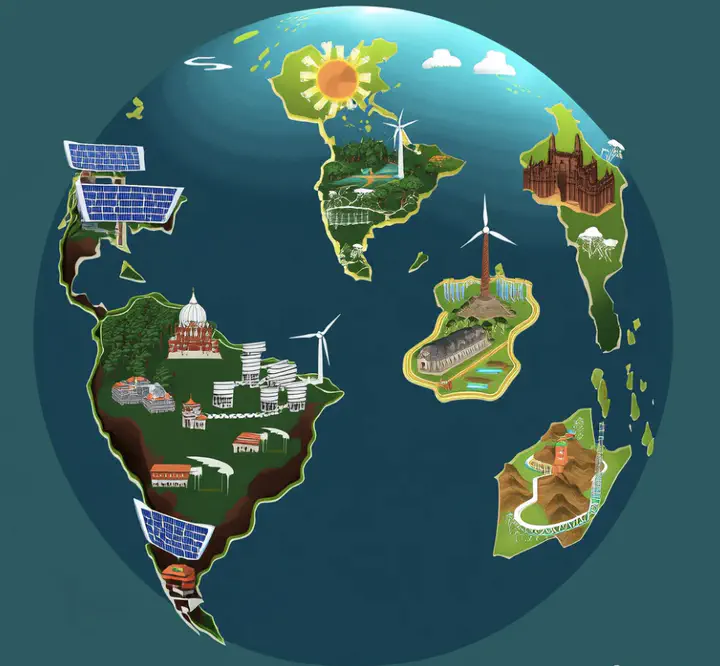A comparative study of energy system transformation toward carbon neutrality in BRICS nations
 Image credit: Unsplash
Image credit: UnsplashAbstract
BRICS nations, accounting for around 45% of global greenhouse gas emissions, have committed to reach carbon neutrality – Brazil and South Africa by 2050, China and Russia by 2060, and India by 2070. In this study, we use a computable general equilibrium model of the world economy to simulate energy system transformation pathways toward net zero, and compare their technological and economic implications. The results show that achieving carbon neutrality necessitates a significant increase in electrification and non-fossil fuel use, with 65% to 82% of energy to be supplied from renewables and 55% to 80% in form of electricity. The study also underscores the essential role of carbon capture and removal technologies, which are expected to contribute 27% to 64% of emission reductions after 2030 across BRICS. The mitigation costs vary by country, ranging from 250 to 390 USD per tonne of CO2 by the carbon neutrality year. Annual investments in the energy sector are projected to be equivalent to 0.8%–3.5% of GDP.